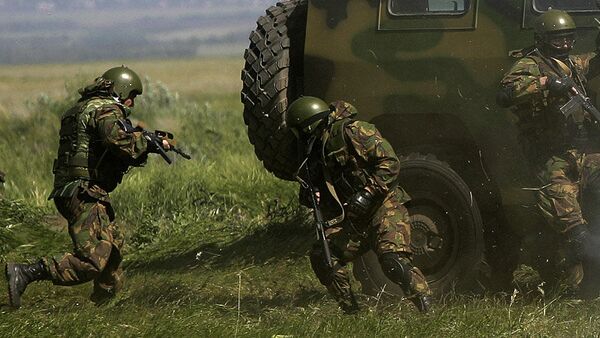The killing of the militant leader thought to be behind the March 29 Moscow metro terrorist attacks is a turning point in the fight against militants in Russia's volatile north Caucasus region, Dagestan's first deputy prime minister said on Saturday.
Militant leader Magomedali Vagabov, along with four other militants, was killed in the Dagestani village of Gunib earlier on Saturday.
"His elimination is evidence that no terrorist can escape responsibility. This was the result of serious work and demonstrates that we are able to fight terrorists," Rizvan Kurbanov said at a meeting with journalists.
He said the elimination of Vagabov would serve as a reminder to all militants and their accomplices to surrender, or risk finding themselves in the same position as Vagabov.
Vagabov is believed to be the husband of Mariam Sharipova, one of the two suicide bombers to attack the Moscow metro on March 29.
Sharipova and the other bomber, Dzhennet Abdurakhmanova, blew themselves up at Lubyanka and Park Kultury metro stations during the morning rush hour, killing 40 people and injuring 100.
Vagabov was a close associate of Chechen militant leader Doku Umarov, who has claimed responsibility for the bombings, police said.
Militant violence is common in Russia's mainly Muslim North Caucasus republics, especially Chechnya, Dagestan and Ingushetia.
The Kremlin has pledged to wage "a ruthless fight" against militant groups but also acknowledges the need to tackle unemployment, organized crime, clan rivalry and corruption as causes of the ongoing violence in the region.
Russia has been fighting militants in the North Caucasus for over a decade, including two separatist wars in Chechnya.
MAKHACHKALA, August 21 (RIA Novosti)


